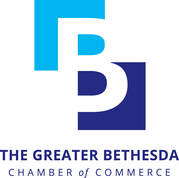|
The Maryland House of Delegates tip credit bill hearing scheduled for February 14th has been cancelled.
The Greater Bethesda Chamber of Commerce partnered with local Chambers in Maryland and the Restaurant Association of Maryland to defeat this legislation in the Maryland General Assembly. Statement from the Restaurant Association of Maryland: The hearing for House Bill 467, which would phase out Maryland’s tip credit, has been cancelled because the bill sponsor will be withdrawing this legislation. This decision comes after nearly 100 servers, bartenders and restaurant operators showed up at a February 1st hearing in Annapolis to oppose the State Senate version of this legislation as part of our industry’s SAVE OUR TIPS campaign. The Senate Finance Committee heard persuasive testimony from tipped employees and restaurant operators who spoke against the bill. As a direct result of our industry’s strong turnout and powerful testimony, this legislation does not have the support needed to pass this Senate committee.
0 Comments
As we celebrate Black History Month, we are honored to recognize history makers with ties to Montgomery County.
Today, we spotlight Maryland Governor Wes Moore. Wes Moore is the 63rd Governor of the state of Maryland. He is Maryland’s first Black Governor in the state’s 246-year history and is just the third African American elected Governor in the history of the United States. Wes was born in Takoma Park, Maryland, to Joy and Westley Moore. Wes is a combat veteran, bestselling author, small business owner, Rhodes Scholar, and former CEO of one of the nation’s largest anti-poverty organizations. Moore built and launched a Baltimore-based business called BridgeEdU, which reinvented freshman year of college for underserved students to increase their likelihood of long-term success. BridgeEdu was acquired by the Brooklyn-based student financial success platform, Edquity, in 2018. It was Moore’s commitment to taking on our toughest challenges that brought him to the Robin Hood foundation, where he served for four years as CEO. During his tenure, the Robin Hood foundation distributed over $600 million toward lifting families out of poverty, including here in Maryland. Excerpts from https://governor.maryland.gov/leadership/Pages/governor.aspx The Greater Bethesda Chamber of Commerce along with the Maryland Restaurant Association and other local chambers strongly and verbally opposed two bills introduced by Councilmember, Will Jawando.
Kathy Stevens, Executive Director, MCAEL & Carla Young, Director of Membership and Community Relations, The Greater Bethesda Chamber of Commerce If so, you missed the opportunity to learn about state and county resources when The Greater Bethesda Chamber of Commerce hosted its quarterly Cultural Roundtable Group with special guest Joana Winningham of the MD Division of Workforce Development & Adult Learning.
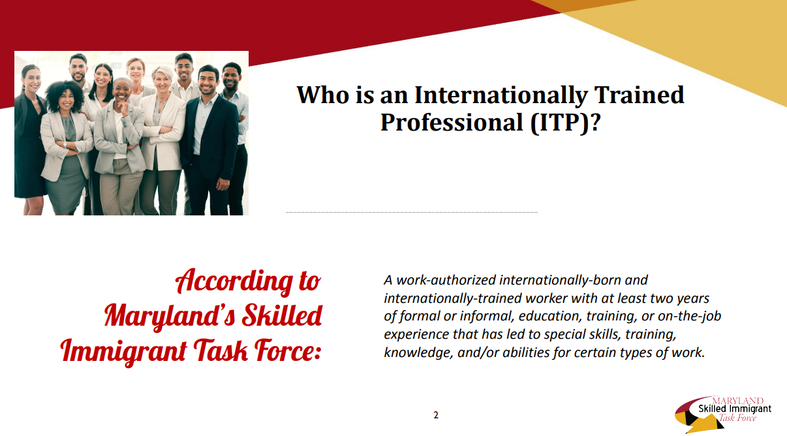 As many of you know, Council Member Will Jawando has introduced a bill to eliminate the tip credit for Montgomery County’s minimum wage. GBCC strongly opposes this bill, and will attend the Council Session today to support our member restaurants and their servers.
Preserving the tip credit system is of utmost importance to protect the livelihoods of restaurant tipped employees in our County. We need to respond to servers’ resounding opposition of this legislation. We ask that you join us to let the County Council know that these proposed changes to the tipping system are unacceptable, both for the financial stability of restaurant tipped employees and for the affordability and quality of dining experiences for our local community. Please read GBCC President and CEO Allie Williams' letter to the Council, and join GBCC Members and staff today at 11:00am for the Maryland Restaurant Association rally, and then attend the County Council session which begins at 1:30. Join the Greater Bethesda Chamber of Commerce, The Gaithersburg Germantown Chamber of Commerce, and the Greater Silver Spring Chamber of Commerce for a multi-Chamber Challenge and networking event in support of a cause we collectively champion – fundraising for the Montgomery College Scholarship Fund!
Annually, each of our Chambers donates to Montgomery College independently, empowering the College to provide critical resources to “transform student lives and enrich the diverse communities it serves.” But this year we need to do more, because their need is greater than ever – In the Fall of 2021 the College received nearly 4,000 applications for assistance and awarded over $3M in scholarships to 2,520 students. To address the need, our Chamber Executives have engaged in a friendly challenge: From September 11th – October 31st, YOU our members are in competition to prove your commitment to community and education by out-donating the other Chambers. GBCC asks that you go BOLD in your contribution and live into our Chamber’s vision: to be the cornerstone for business growth and prosperity. As a THANK YOU for your commitment to financially supporting Montgomery College, we invite you to attend our joint networking event September 26th from 7:30 am - 9:15 am in the Montgomery College Student Serves Center Lobby. You will have the opportunity to expand your network through connecting with members of all three Chambers and hear from student members of the MC Foundation Board about their experience and the need for donor scholarship support. There is no registration fee to attend this event beyond your commitment to donate to the Chamber Challenge! Step up today to support the Montgomery College Scholarship Foundation – DONATE HERE!  New 2023 SBA Loan Rules Make Getting A Small Business Loan Easier New 2023 SBA Loan Rules Make Getting A Small Business Loan Easier By Neil Hare SBA loan rule changes may offer relief to small businesses still struggling after the pandemic. GETTY On May 11, 2023, crucial changes to the Small Business Administration’s (SBA) 7(a) and 504 loan programs went into effect, aimed at streamlining the loan application process, expanding the number and types of lenders, and relaxing regulations in order to reach more small businesses, especially those in underserved communities. While these changes may offer much-needed relief to small businesses still struggling in the wake of the pandemic, there is backlash from many who believe the rules signify the end of the SBA’s prudent lending practices and will increase defaults on the taxpayers’ dime. The SBA has long served as a lender of last resort for small businesses that were unable to access loans through private lenders. The 7(a) loan is the SBA’s most popular loan program and has a maximum borrowing limit of $5 million. Loans can be used for real estate, equipment, acquisitions, and other working capital. The 504 loan program is primarily used for real estate or land loans, with fixed interest rates and maturity up to 25 years and a maximum borrowing limit of $5.5 million. In the 2022 fiscal year,$25.7 billion in 7(a) loans and $9.2 billion in 504 loans were issued. New SBA loan measures come with both strong support and opposition Those in favor of the new rules emphasize the importance of access to capital in running a successful small business in the current economic environment. Traditional bank loans often come with revenue demands many businesses can’t meet, and the cost of that capital has increased dramatically with recent ongoing Fed rate hikes. In addition, many small businesses find the SBA loan application process prohibitively complicated and time-consuming; women, minority, and veteran- owned small businesses have also historically struggled with accessing capital, an issue the new rules promise to address. In a January 6, 2023 comment letter to the SBA, Penny Lee, CEO of the Financial Technology Association—the trade association representing fintechs—pledged support for the new rules: “Fintechs play an important role in filling the credit access gap, especially when no other options are available and we encourage the SBA to proceed with this initiative. In particular, we believe that by leveraging technology and nontraditional data, fintechs can better serve small business borrowers in the 7(a) program while maintaining the high credit and compliance standards set by established participants" Ami Kassar, CEO and founder of MultiFunding, a Philadelphia-based company that helps small businesses navigate the SBA loan process, worries that the new rules will lead to an uptick in fraud and widespread loan defaults over the next three years, all backstopped by the U.S. taxpayer. Kassar’s concern is that fintechs are not beholden to existing banking regulations that traditional lenders will need to follow regardless of these new rule changes. “These new rules have been carefully lobbied by the fintechs that want to speed up the lending process and get money out the door faster. There will be increased defaults due to relaxed risk analysis and in three years everyone will wonder why," he says. "The SBA has done no analysis on potential default rates due to these changes prior to issuing these rules.” The new SBA loan requirements and rules outlined The new rules affect multiple areas of the SBA lending process, starting with the expansion of approved 7(a) and 504 lenders. Previously, the SBA had limited the number of approved SBA lenders to a small handful. Of course, this cap had been lifted dramatically with the PPP program. Under the new rules, there will no longer be a cap on the number of approved lenders, and fintech companies will be allowed to apply for SBA approval. In theory, this move by the SBA will increase the number of loans issued and decrease the timeline of loan applications. The SBA will also streamline the evaluation of borrowers by eliminating certain criteria. Prior to the new rules, nine factors were considered when evaluating potential borrowers:
The criteria has been slashed to three distinct factors: the applicant’s credit report, cash flow, and equity or collateral. The removal of “character and reputation” as a factor for consideration aims to remove the weight of individual bias in the evaluation process. The requirement for hazard insurance on collateral for 7(a) and 504 loans under $500,000 also is eliminated. This removes a barrier to obtaining small loans and reduces the timeline to obtain a loan. The potential uses for 7(a) loans are expanded to include partial transfers in ownership. Previously, only full transfers in ownership were eligible for 7(a) loans. Finally, the “credit elsewhere” test whereby applicants must prove they couldn’t obtain loans at other institutions is being reduced to a “check the box” without corresponding paperwork—another area of concern for opponents of these rule changes. SBA loan program improvements will expand access to funding Overall, these new rules are a much-needed boost for small businesses that are still recovering from Covid shutdowns and corresponding supply chain issues and inflation. Many businesses are still struggling to stay afloat and generate enough profit for owners to save for retirement, pay the mortgage, and take a summer vacation. While examining risk is and always should be an important part of any lending process, expanding opportunities, especially in underserved and underbanked communities, can only help the uncertain economic future we all face. About the Author Neil Hare is an attorney and President of GVC Strategies, where he specializes in small business policy, advocacy, and communications campaigns; follow him on Twitter @nehare and on LinkedIn. See more of Neil’s articles and full bio on AllBusiness.com. The Scotland community, here in Bethesda, holds a rich history that dates back many generations. The roots of this African American enclave can be traced to a time when racial segregation and discrimination were prevalent in the United States. The Scotland community provided a safe haven for African American families who sought to establish a prosperous and supportive neighborhood. Despite facing various challenges and limited resources, the residents of Scotland built a tight-knit community where they could celebrate their culture, traditions, and history. One of many significant events in the history of the Scotland community was the “Save Our Scotland” Campaign, launched in the 1960’s as a collaboration between residents and Joyce B. Siegel, a Bethesda resident who became an advocate for preservation of the community, as development was rapidly threatening to erase Scotland. The heart of Scotland has long been recognized as the Scotland AME Zion Church on Seven Locks Road. The church was hand-built between 1915 and 1924 by its congregants, many of whom lived in the Scotland community. Unfortunately, during the summer of 2019, a flood damaged the church building beyond use. Thankfully, Scotland, as well as the greater Bethesda community, has created an opportunity to collaborate once again in the rebuilding of the historic church. The Scotland Juneteenth Heritage Festival, with events beginning June 17th, continuing through June 19th, will see all net proceeds benefit rebuilding, and festival proceeds from future years earmarked for other African American Causes in the region. Juneteenth commemorates the emancipation of enslaved African Americans in the United States. On June 19, 1865, Union soldiers arrived in Galveston, Texas, and announced that the Civil War had ended, and all slaves were now free. In recent years, the significance of Juneteenth has gained increased recognition and importance throughout the United States. The inaugural Juneteenth celebration in the Scotland community marks a significant milestone in its history and ours. It serves as a reminder of the community's strength and determination to preserve and honor their heritage. It is a testament to the profound impact that a united community can have in creating a brighter and more inclusive future for all. Learn more about how you can support and attend the Scotland Juneteenth Heritage Festival HERE. Chamber members and friends, A concerned chamber member, a wide-ranging Development Company, asked that we share a message with you… In the very near future, the County Council will be approving our FY24 budget, the largest budget ever and the largest increase we’ve seen in several years. The budget supersizes County government by $330M, creating a $145M structural deficit next year all while our population is decreasing. This is property tax hike being sold as necessary to fund our schools. However, there are ample available funds available in the current budget to fully fund schools, by example:
No other jurisdiction in the Region (or DC) is raising property taxes – even as they all significantly increase school funding. Please use this link to email your concerns to your County Council members: https://www.stopthemocotaxhike.com/ Thank you, and please share this link with your family, friends, and neighbors. Respectfully, Your GBCC The Greater Bethesda Chamber of Commerce BETHESDA | CABIN JOHN | CHEVY CHASE | FRIENDSHIP HEIGHTS | GARRETT PARK GLEN ECHO | NORTH BETHESDA | POTOMAC | PIKE DISTRICT | ROCK SPRING | WESTBARD 7910 Woodmont Ave., Suite 1204, Bethesda, MD 20814 P: (301) 652-4900 |
Welcome!Our Chamber Blog is designed to provide you information about The Chamber, our members, advocacy and legislative updates, and important business tools. Archives
June 2024
Categories
All
|
|

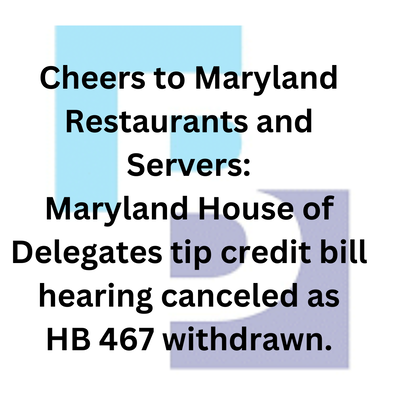
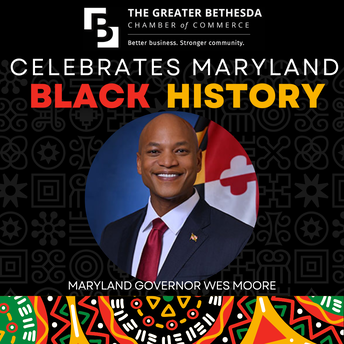

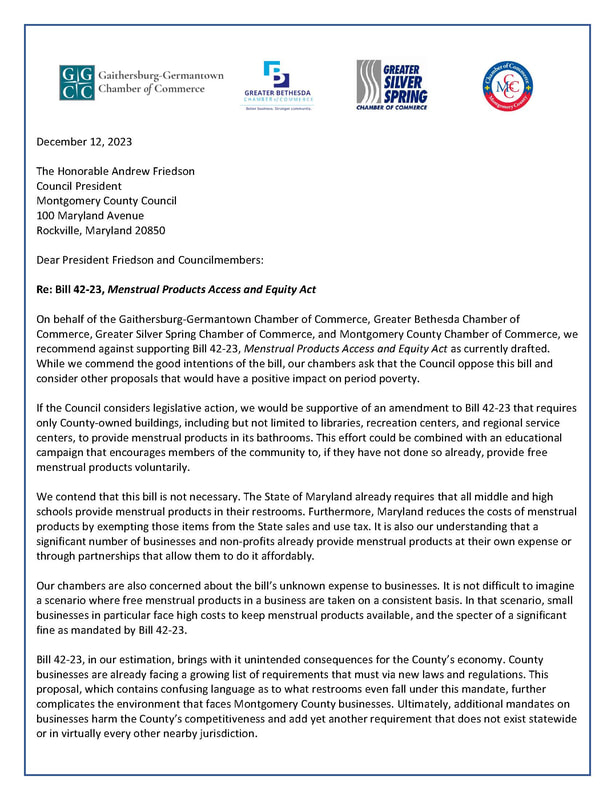
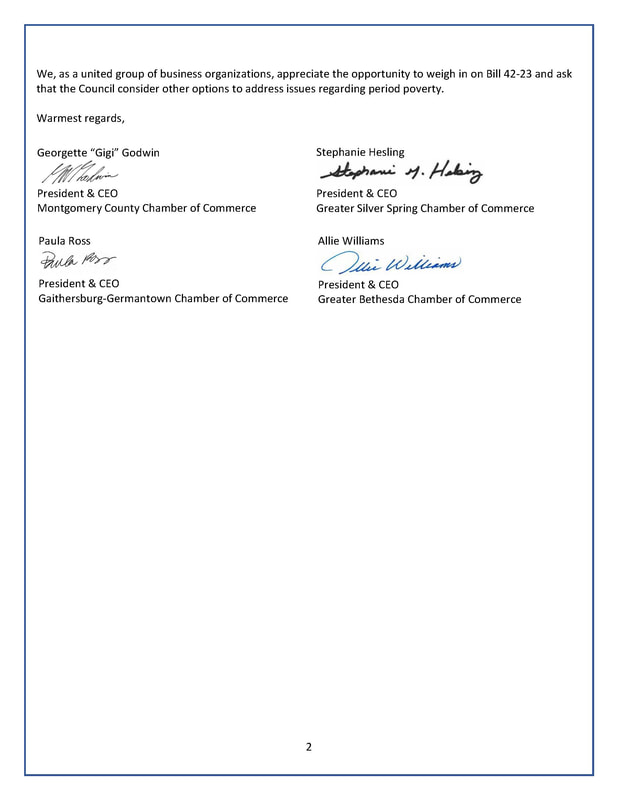
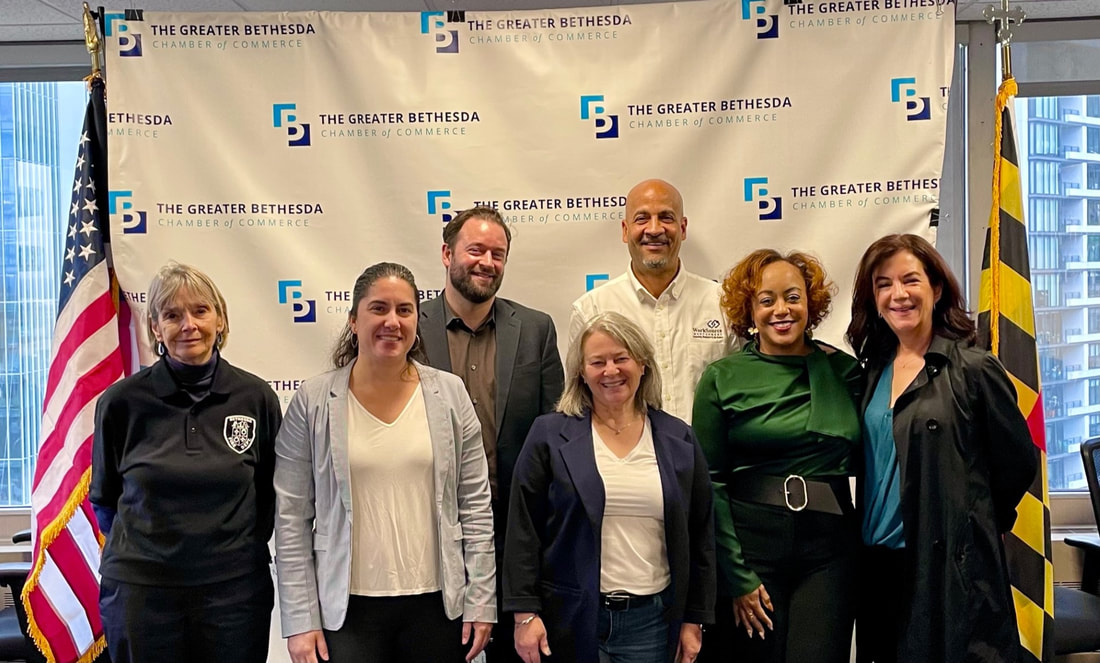
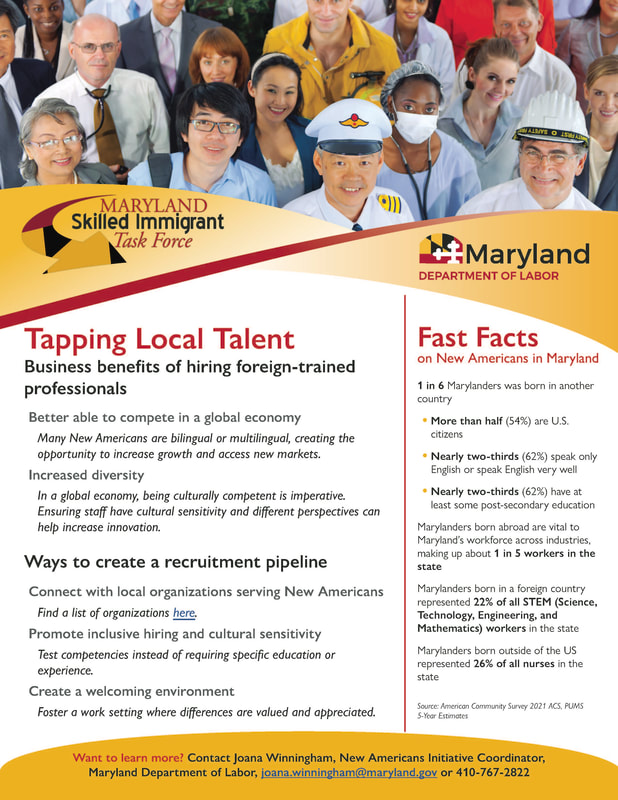
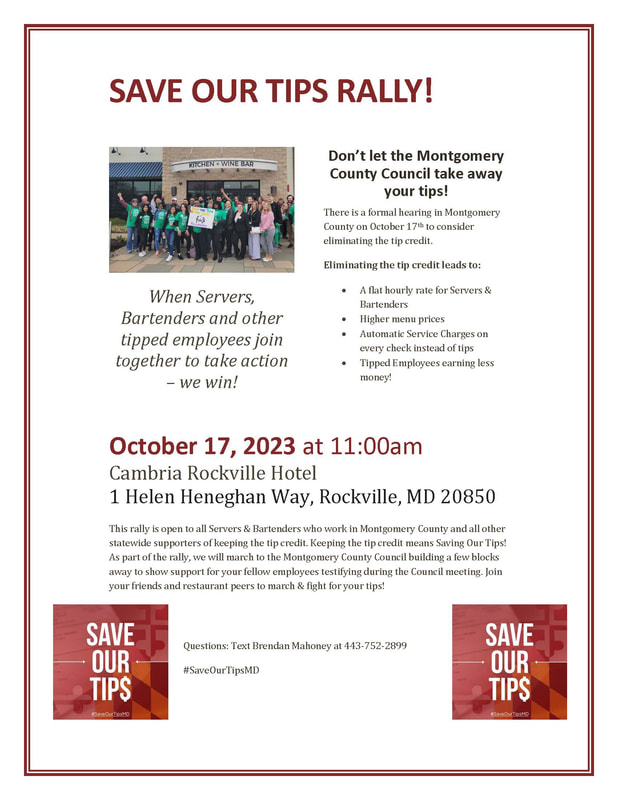
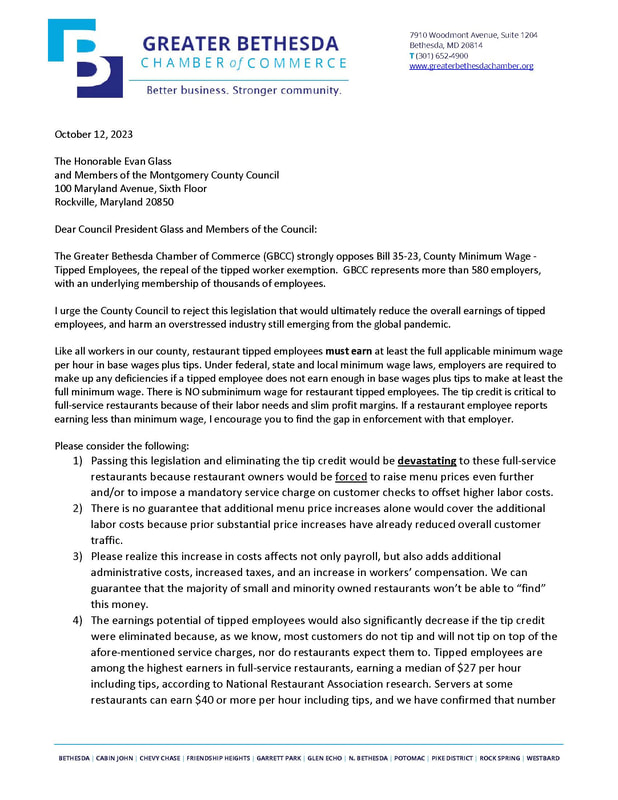
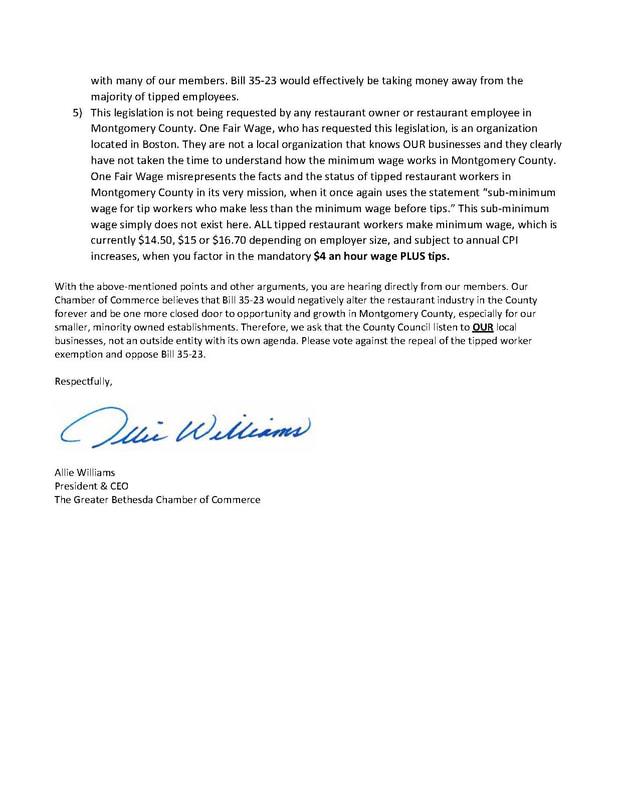
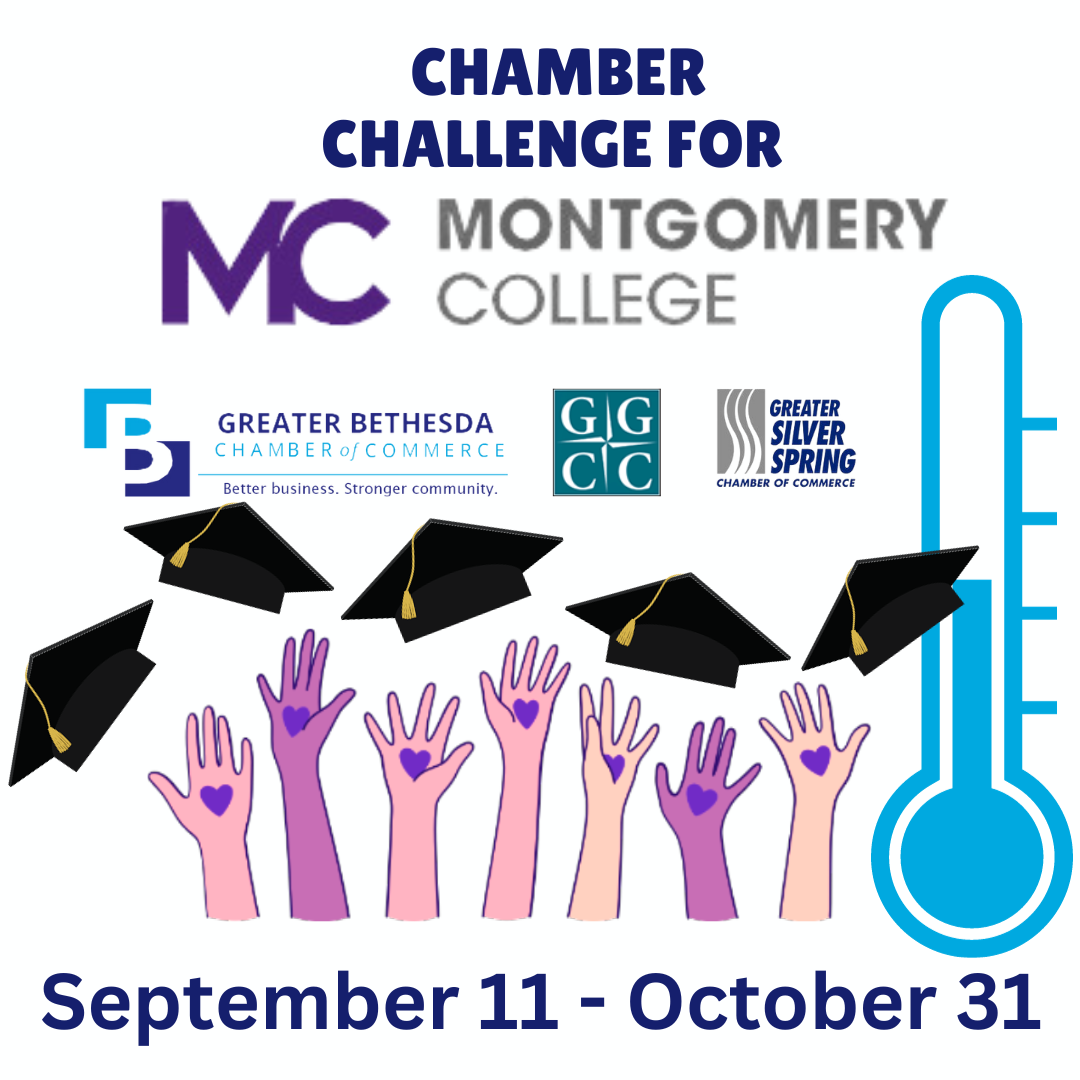


 RSS Feed
RSS Feed
